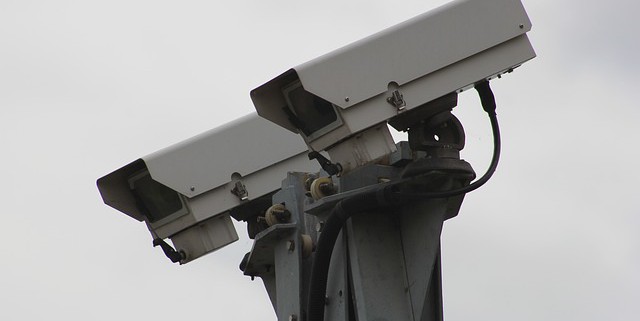US Government Is Going To Monitor All Your Financial Transaction Very Soon
Ever since Nixon took the United States off the gold standard, the US dollar has continued to lose it’s redeemable for gold or silver. Now, money derives its value purely from faith, a dogmatic faith in our government and the laws of the land.
This no good given how many rights we’ve already lost.
Even as the Federal Reserve tries to maintain control over the physical cash system, various companies (IT giants and financial backers) are hacking at the system, trying to kill it in an attempt to make a ghost of its former self.
It will create a digital ghost, one that would then roam in the new cashless society.
At one extreme are the world’s leading IT giants and financial companies tirelessly working to completely replace paper money with a wireless payment system for the smartphones Apply Pay set to drive contactless payments up to $300m by 2016, rivaling with Samsung Pay, and Google Wallet, to name a few. On the other extreme are the technology giants such as IBM developing highly sophisticated biometric systems that create a highly unique personal ID using (do hold your breath) a person’s eyes, fingerprints, face, facial expressions, voice, heartbeat, and more.
The end result is the same: loss of not just paper money, but also plastic money.
It will lead us into a new world order with a cashless society.
It may sound fantastic, and within this cashless system are various traps ranging from loss of our freedoms and rights to leaving a significant part of the society in a tough situation.
Let’s start with stating the cases being made for the cashless society, identifying the proponents, and dissecting the reality of it all.
The Cases for Cashless Societies across the globe
Cashless is gaining momentum. It is often portrayed as an ode’ to progress and development…
Here are the primary cases being made for a cashless society, let’s start with the one’s given by its biggest proponent, the United Nations’ Better Than Cash Alliance who has partnered with Bill & Melinda Gates Foundation UNCDF, CITI, MasterCard, Ford Foundation, USAID, Omidyar Network, and Visa Inc., and offers the following reasons:
- Transparency — In a cashless society where payments can easily be tracked and traced, theft of payments and hence corruption can be dramatically reduced
- Security — The money goes where it is meant to. The biggest threat to a digital transaction is the loss of information. Hence in case of the digital payment systems, it is extremely easy to shut down a digital wallet if it gets stolen whereas in case of biometric, your ID is yours alone and very hard to copy.
- Financial inclusion — The unbanked of the society will be able to create a record of their timely payments, allowing them to get other services including loans for instance
- Cost savings —Digital payments reduce bank processing fees
Apart from these, early adopters have a lot to say about convenience.
There is no doubt about it, the system does offer convenience. Money simply becomes another function of the smartphone, an app that eliminates the need for carrying and protecting cash or plastic money and which allows payments at the touch of your fingers.
If you think the case for the cashless society is becoming longer, then bear with me. Because only from knowing all these “pros” can we see the new methods of surveillance they are establishing.
Now from the perspective of the economy, a cashless payment system will:
- Enhance our tax base because the government can easily trace almost every transaction throughout the economy from a centralized location.
- It can put down the parallel economy, especially one based on various illicit activities.
- Increase GDP and perhaps employment by forcing people to convert bank savings into either investments or consumptions, and
- Create an environment where people start adapting cashless and wireless technologies.
Despite how it sounds (an easier and more convenient method of purchasing goods and services) fear is in the air across the globe.
Why?
The Problems with Cashless Society
The risks posed by the new cashless society go far beyond simple loss of money or an inability to use the system.
Yes, let’s not go into the debate that the technology is not perfect, not yet, and that hackers could easily get into it or that your information can be stolen.
It’s more than that now.
Let’s begin “Google Wallet makes it easy to pay – in stores, online or to anyone in the US with a Gmail address. It works with any debit or credit card, on every mobile carrier.” That means more and more information about you is being centralized and gathered at a single place.
As Bill Gates makes a case for cashless society yet again in his 2015 Annual Letter “By 2030, two billion people will be storing money and making payment with their phones.”
And here’s the most alluring part “Already, in the developing countries with the right regulatory framework, people are storing money digitally on their phones and using their phones to make purchases, as if they were debit cards.”
The regulatory frameworks are very important to this debate.
So what happens when the society goes cashless?
- We Go Greece — in a cashless society, the government loses a robust alternative for paying debts. We’re already observing how Greece’s unwillingness or inability to print more Drachma bills to pay its debt (a precondition for securing the euro loans) has put it on the plank
- We Face Incremental Risks — The only incremental risk paper money carries with it is physical theft. However, when you move to a cashless society and convert it into bank deposits you not only pay a fee but are also exposed to negative interests, and a substantial loss in case of bankruptcy. I mean, by going cashless we’ll be giving our currency that was backed by the central bank and swap it for a currency backed by the local bank.
- Consequences for the Retirees and Poor — What do you think will happen for the people incapable of transacting using plastic money? The retirees who have liquid savings will have to bear a disproportionate costs for holding it in bank accounts, whereas the poor who have no access to the banking system will become dependent (more than ever) on government handouts.
- Unemployment — What about illegal immigrants? They’ll be out of job creating significant civil unrest.
- Cyber Risk — The cashless society is solely dependent on electronic forms of transactions, if any form of disruptions occurs, the economy will come to a halt.
- Penalties and New Regulations — How will the new government mandates for a cashless society be enforced? With a ban on cash transactions right? This implies penalties which in turn means more stringent regulations, compliance costs/penalties, disclosure requirements, and even jail.
But consider how banning cash transactions will affect the position of US dollar as the world’s reserve currency. It will roll the downhill.
This would mean that regulatory frameworks are being implemented on the world. A much different approach than simply forcing it on just US citizens. What do you think the foreigners will think and do with their US dollars?
Dump the bills and flock to the new currency capable of offering the needed liquidity.
It is true that the cashless society trend is rising and at an alarming rate because of its convenience:
Image curtesy of Highcharts.com
Cash seems to be dying slowly.
Countries such as Denmark (which has already become the first developed country moving towards becoming a cashless society and is followed suit by Sweden), the people believe in the system for their security, and unlike us (or the rest of the world) are much less concerned about what the NSA revelations had meant for us.
For US citizens that is the biggest problem.
A cashless society with implanted microchip with a new mode of discipline and monitoring people, tearing what remains of our privacy after various customer tracking technologies have been implemented for retargeting ads and tracking behavior.
With the fast paced lifestyle and faster creation and deployment of technologies, we will soon be at a standoff, where the market itself will only have technologies that offer no other alternative but a cashless payment system.
The United Nations, alongside the Bill and Melinda Gates Foundation, is already moving across the globe wanting societies to forego cash for more virtual transacting. It is playing its trumpet: of a cutting costs and improving transparency.
The stakeholders are already working with the private sectors and governments to create the new market for the new regime.
Here’s a list of the various constitutional rights we’ve already lost, a showcase of the government’s power (including the right to indefinitely detain and assassinate any American citizen without charge).
Now it’s come to a cashless society and near total surveillance using our digital transactions.
With all this said, there are ways to protect our capital, assets, and investments and we can actually prosper from the change if you understand how to take advantage of the system.
Follow My Analysis, Insight and ETF Trades and Prosper: www.TheGoldAndOilGuy.com
Chris Vermeulen



